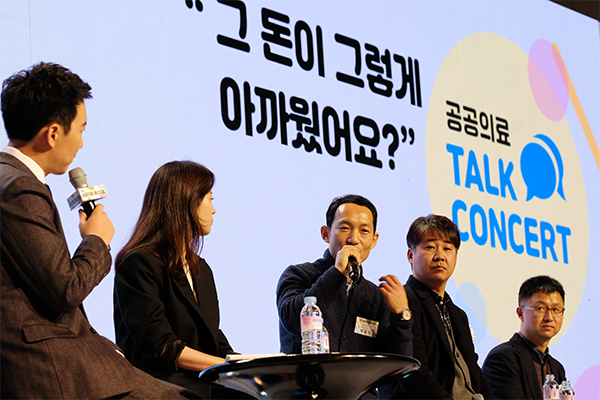
Korea has the second most number of hospital beds next to Japan among the member economies of the Organization for Economic Cooperation and Development(OECD) and the number of hospital visits is the highest among the OECD member economies. However, the public health ratio in terms of the number of hospital beds was 9.2 percent and its ratio in terms of the number of medical facilities was only 5.7 percent as of 2017, which is the lowest among the OECD member economies.
The lack of the public health service further aggravates in the local areas, leading to the medical service gap between the regions. Of 232 local governments nationwide, 55 local governments do not have medical facilities for the delivery of childbirth. South Korea reports one of the highest maternal mortality rate among the OECD member economies, following Mexico and Turkey. The child mortality rate is 1.1 per 1,000 babies in Seoul, whereas its rate shoots up to 4.4 in Daegu, four times higher than in Seoul. It seems that life and death increasingly depend on where you live in Korea.
Amid the alarming backdrop of the public health imbalance in Korea, the government takes initiative in improving the situation through opening an event called 'the Public Health and Medical Festival' held by the Ministry of Health and Welfare at the Dongdaemun Design Plaza(DDP) in central Seoul on November 26. The Festival is designed for the branches of the government and the institutions to share the direction and vision toward the public health which was disclosed in 'the comprehensive measures for the development of the public health' by the government on October 1.
A notable event of the Festival was a talk concert hosted by Moon So-ri, an actress, who was appointed as an honorary ambassador for the promotion of the public health and medical service. Panelists working in the public health facilities participated in the talk concert titled 'the reflections and challenges of the public health and medical service'. Moon So-ri raised the importance of the public health and medical service in her role as a medical doctor named 'Oh Se-hwa' in a television series titled 'Life'. The problems facing the government policy on the public health and medical service was fully exposed by the panelists. One of them is the establishment of the public children rehabilitation centers which was included in a policy task of the five-year plan of the Moon Jae-in administration.
The first public children's rehabilitation center with the national budget of 7.8 billion won(US$ 6.9 million) will be established in the City of Daejeon. Kim Dong-seok, chairman of the Daejeon Children's Rehabilitation Center, appealed to the audience, saying that "we can not build the underground parking lots in the medical center due to the budget constraints. The meaning of 'publicness' in the first public children's rehabilitation center should be well taken care of and fostered."
Health and Welfare Minister Park Neung-hoo said with regrets that "the government plans to establish five public children's rehabilitation centers across the country, and we know that with the budget of 7.8 billion won(US$ 6.9 million), even it is difficult to build the underground parking lots. The administration is now in dilemma how far we can proceed with the limited authority, because the budget after all will be decided by the National Assembly." The implementation of the public health policy faces the problem of securing an adequate national budget from its early stage.
Park Yoon-seok(center), organizing director of the Ulsan and South Gyeongsang Provincial Office of the Korea Health and Medical Workers' Union(KHMU) said that "I am filled with emotions to see a public health and medical service festival open by the Ministry of Health and Welfare(MOHW), because four years ago today was called the 'death announcement day of the public health service' since the MOHW allowed the South Gyeongsang provincial government to close down the Jinju Medical Center and to use the building as the local government office." Park was heading the Jinju Medical Center labor union at the time when it was shut down by the conservative administration four years ago.
The MOHW and South Gyeongsang provincial government are currently seeking to open a new public medical center in place of the closed-down Jinju Medical Center to cover the south-western areas of South Gyeongsang Province. The government is also planning to acquire the Busan Baptist Hospital which went bankrupt in 2017 to open a branch hospital to the National Medical Center in the City of Busan.
reported by Kim Mi-young
translated by Kim Sung-jin

